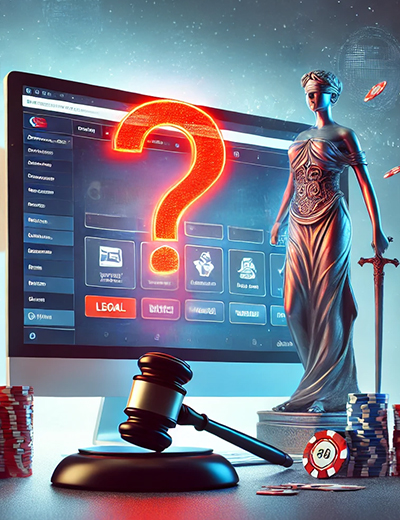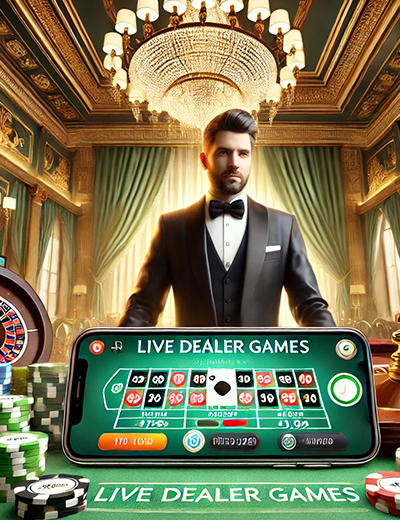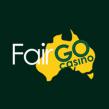Online Gambling for Real Money in 2026
On this page
Introduction

What are the online gambling basics?
If you're new to online gambling, you might find the process of getting started a bit overwhelming. As a relatively young industry, online gambling is still populated by both reputable and less trustworthy casinos. With the competition being fierce, it's crucial to choose your platform wisely. To help you navigate this landscape, I've provided some tips below.
You might also be concerned about whether the games are fair. At one time, I would have confidently said no. On average, casinos retain around 75% of the money deposited, which should theoretically negate the need for any cheating. However, I have heard numerous complaints of extremely bad luck from playing at some non-licensed casinos that use no-name web software. I do believe that the vast majority of online casinos play fair but am suspicious of a small minority. As you surf from one web site to another of the online casinos it may seem arbitrary about choosing one to play at. Let me help by saying that quality counts. Take a close look at their web site or the free games. If they seem like a professional organization, chances are better they are. Finally trust your gut. If you have a bad feeling about a site then resist playing there, even if you can't explain to yourself the exact reason.
Top 10 Wizard of Odds Approved Casinos
View AllSign Up Bonus - US
min WR: 45xB&DSign Up Bonus
min WR: 35xB&DBonus Code
Sign Up Bonus
min WR: 35xB&DThe Pros and Cons of Online Casino Gambling
There is no denying that online gambling differs significantly from gambling at a physical casino. While it offers certain advantages, it also has its drawbacks. Based on my personal experiences, here are the pros and cons of online gambling compared to its brick-and-mortar counterparts.
The Pros:
- Competitive Offers: Online gambling is a highly competitive industry, and many casinos offer enticing promotions to attract and retain players. These can include sign-up bonuses that add 10% to 50% to your initial deposit, random account deposits, or even vacation giveaways for reaching specific betting thresholds.
- Better Rules: Online casinos often provide more favorable rules compared to physical casinos, such as lower house edges and higher payout percentages.
- Convenience: You can gamble from the comfort of your own home, eliminating the need to travel to a casino.
- No Annoyances: Online gambling frees you from common irritations found in physical casinos, like smoke-filled environments.
- No Tipping: There’s no need to tip dealers or staff, as you would in a physical casino.
The Cons:
- Withdrawal Delays: Patience is required when cashing out your winnings. Despite improvements in recent years, American players can still experience delays of up to 5 business days for withdrawals to be processed and reflected in their accounts (Fast Withdrawal Casinos)
- Inconsistent Customer Service: The quality of customer service can vary widely. Some online casinos offer excellent support via live chat, email, and toll-free numbers, while others may have slow response times, lack a contact number, and seem uninterested in addressing player concerns.
- Risk of Unlicensed Sites: Playing on a site without a legitimate gaming license can leave you powerless in disputes. Although the situation has improved over the past few years, unlicensed sites still exist and may take advantage of unsuspecting players.
- Confusing Statements: Frequent players may find their credit or debit card statements difficult to manage. Transactions often list the merchant bank rather than the casino’s name, making it challenging to track spending.
What is Expected of the Player
One of the major issues facing the online gambling industry is player abuse. At the annual industry meeting in Montreal, there was as much, if not more, discussion about this problem as there was about the future legality of online gambling. This concern is quite valid, as the industry faces significant challenges from individuals attempting to defraud it.
Online gambling is a highly competitive field, and in response to player abuse, online casinos often collaborate to protect themselves. They share negative databases, or blacklists, that include players suspected of fraud or abuse. The typical reasons for being blacklisted are:
- Disputing charges
- Threatening to dispute charges
- Using someone else's credit card
- Manipulating gaming software
- Opening multiple accounts from the same household or computer

Among these, disputing or threatening to dispute charges - known in the industry as chargebacks - presents the most significant problem. Such actions can quickly lead to a player being blacklisted. Multiple accounts per household or computer are typically only problematic when multiple bonuses are claimed by the same household or email address. Julie Sidwell notes that at least two negative databases track bonus abusers, or players who only engage during bonus promotions.
Once a player is blacklisted, they are likely to be unwelcome at all casinos that share the blacklist. This situation is akin to having a bad credit rating or a police record - once you're on it, it follows you wherever you go. Placement on a blacklist is not always justified, and there is often no formal process for appealing removal.
Operating in the unregulated world of the Internet carries risks for both players and casinos. As a result, there is an unwritten code of honor expected of players. They cannot exploit legal loopholes or engage in behavior that, while not explicitly prohibited, is deemed questionable. In the absence of a higher regulatory authority, players are expected to adhere to an implied good faith contract. Maintaining a reputation for integrity and avoiding any appearance of dubious behavior is crucial for long-term success in online gambling.
Playing for Bonuses
Top 4 Sign Up bonuses View All

Top 4 Sign Up bonuses
To attract your business many casinos will add a bonus to your initial deposit, usually 10% but I have seen it go as high as 100%. When you accept a bonus, you are usually required to meet a certain level of betting action to cash out the bonus. When you accept a bonus, you usually need to meet specific betting requirements before you can cash it out. The required wagering can range from three times the deposit amount to 40 times the sum of the deposit plus the bonus. Be sure to read the rules carefully before you start playing.
After opening an account, wait at least 15 minutes for a welcome email to arrive. Sometimes, this email will detail bonus conditions that differ from what’s stated on the website. It’s wise to assume the more stringent conditions apply. Regardless of the requirements, aim to exceed them significantly. For instance, if the requirement is to wager a certain amount, try to play at least 50% more than required, though 100% or more is even better. Some online casinos reserve the right to deny bonuses to players they suspect are only interested in the bonus rather than the enjoyment of the casino.
Finally I would be suspicious of casinos that you have never opened an account with who send unsolicited bonus offers.
I have created an automatically updating list of the best bonuses in terms of wagering requirements and other terms for each of the popular casino games, as well as lists of No Deposit Bonuses and Codes.
Top 4 No Deposit bonuses View All
Note: This information is not available for Ontario residents.
What are the best online gambling sites?
There are thousands of online casinos to choose from, and to the beginner it may seem confusing telling them apart. Use our 'Recommended' section as a guide on the top rated and trusted brands. Please also consider these important factors:
- Is there a sign-up bonus? If so how much?
- How are the rules? This can vary a lot in games like blackjack and video poker.
- Are there transaction fees? If so how much?
- Is there a phone number you can call? Is it toll free? If you call, is the line busy?
- Is the casino licensed?
- Is there information available about who owns and operates the casino?
- Who provides the software? Is it a reliable name, or some mystery no-name company?
Do not expect any casino to score an A+ in all these categories. Consider the total package and use your best judgment. A good place to start is to visit and read my reviews of casinos with the Wizards Seal.
 Ohio Recommended Online Casinos
Ohio Recommended Online Casinos
View All
Getting Started with Online Gambling

- Choosing a Casino: Selecting a trustworthy online casino is crucial. Look for casinos with positive reviews, a professional website, transparent policies, and a recognizable confirmable license from a vetted regulator with a good history of finding for the player when the operator is in the wrong.
You’ll notice that all of our casino reviews show a rating for each operation. These star-ratings can include our own assessment as well as those by the player community across several different trusted portals. While not an exhaustive list, among the rating contributors, are casinolistings.com, gamesandcasino.com, lcb.org, and online.worldcasinodirectory.com. Regardless of the number of ratings considered, there will always be an average rating in decimal increments from 1 star to 5 stars.
After considering everything, in the end, you must trust your instincts - if something feels off, it’s best to avoid that site. If the site is extremely interesting, make a bookmark or mental note and wait a few weeks or months to revisit it and any pertinent player review sites to see if your instincts were right.
- Registering an Account: All licensed online casinos require you to create an account. The rare exceptions are crypto-only operators or “anonymous” sites. The standard registration process involves providing personal information and choosing a payment method. Ensure the casino uses secure encryption technology to protect your data and the privacy policy is clearly stated. A link to the license, the terms and conditions as well as the data and other privacy links are usually found in the footer of the web page.
- Depositing Funds: Deposits can be made using credit/debit cards, e-wallets, bank transfers, and even cryptocurrencies like Bitcoin. Ethereum, LiteCoin, or any other number of “alt-coins”.
Depending on your location some credit card companies treat casino deposits as a cash advance, which may incur fees. Credit card deposits are not allowed in some jurisdictions whereas debit cards or PayPal might be accepted. Once logged in, be sure to check the cashier page to make sure you have a way to withdraw your funds. For instance, if you deposit with a prepaid voucher make sure you can cash out using a bank wire or other convenient and available means. Oftentimes, the way you deposit will be the way you withdraw winnings.
- Exploring Bonuses: Most operators offer deposit incentives to attract new customers while others provide ongoing deposit bonuses and even free chips. However, there is no such thing as a free lunch and there are almost always additional terms and conditions attached to bonuses. To learn more, please see our coverage of Casino Bonuses, Guide to No Deposit Bonuses, No Deposit Bonus Codes and especially, Understanding Casino Terms and Conditions.
- Playing Games: Most online casino games are delivered over your secure web browser nowadays in HTML5 format. The games and all infrastructure such as customer support, bonusing, and banking are available instantly. Some platforms still allow players to download a desktop casino client or a mobile app, but many only support the instant play format. However you choose to play it’s always good to familiarize yourself with the rules of the games you are going to play, as these can vary between casinos and even from game to game in some instances. Video poker and blackjack are two games where the rules and the paytables in the case of video poker greatly determine your RTP, odds, and chances of winning.
- Withdrawing Winnings: When you're ready to cash out, your winnings will often be credited back to your initial deposit method (how fast?), up to the amount deposited or otherwise paid out via the method you used to deposit. Debit card deposits are rarely paid out to a crypto-wallet or eWallet, or vice versa. Although rare, except in the case of small bank wires, some operators charge fees for withdrawals, so check their policies beforehand.
US Online Casinos Deposit & Withdrawal Grades
View All-
Minimum Desposit Grade $10 (Crypto)/$500(Wire Transfer)A-
-
Cashout Limit Grade $100,000 (Bitcoin) WeeklyA++
-
Cashout Times Grade KYC: Up to 3 business days; Pending time: 24 hours; Bitcoin: Within 24 hours; Check/Wire Transfer: Within 15 business daysF+
-
Minimum Withdrawal Grade $20 (Crypto)/$500(Wire Transfer)B--
-
Low Rollers GradeF--
-
High Rollers GradeF--
-
Minimum Desposit Grade $10 (Bitcoin)/ $20 (Credit Cards)A-
-
Cashout Limit Grade $3,000 (One withdrawal per seven days) Check; $9,500 (One withdrawal per three days) BitcoinA++
-
Cashout Times Grade KYC: 24-48 hours; Pending time: 24-48 hours (except crypto 0-24 hours); Bitcoin: up to 24 hours; Check/Bank Transfer: 10-15 business daysF+
-
Minimum Withdrawal Grade $10 (Bitcoin)/ $100 (Check)A-
-
Low Rollers GradeC
-
High Rollers GradeD
-
Minimum Desposit Grade $10 (Bitcoin)/$35 (Credit/Debit Cards)A-
-
Cashout Limit Grade $4,000 WeeklyC++
-
Cashout Times Grade KYC: Within 2 business days; Pending time: Within 3 business days; Bitcoin: 24-48 hours; Bank Transfer/Check: 3-5 business daysD++
-
Minimum Withdrawal Grade $30 (Bitcoin)/$200 (Bank Transfer/Check)D++
-
Low Rollers GradeF-
-
High Rollers GradeA

Is it Illegal to Gamble Online?
On October 13th, 2006 the Unlawful Internet Gambling and Enforcement Act was signed into law by George W. Bush as an unrelated add-on to the SAFE Port Act of 2006, and we have followed what has changed since then. Since then many Internet casinos have closed the accounts of American players, as well as Neteller, the main payment processor for U.S. players.
In December 2011 the US Department of Justice issued a legal opinion that the Wire Act of 1961 online applied to sportsbetting, opening the door for legalized online gambling in the United States. Since then, several states have legalized online betting in some form, and more states are set to come on board in the future. As of this writing New Jersey, Connecticut, Delaware, Pennsylvania, Michigan, West Virginia, and Rhode Island offer online casino games with Nevada covering online poker. Sports betting is legal within many state’s borders, but no interstate sports betting is allowed. There has been no movement of federal legalization of the activity, so right now it remains in a legal grey area, although not illegal.
A significant recent legal development occurred in 2022 when IGT sought a declaratory judgment to clarify the legality of online games. A District Court ruled in favor of IGT, affirming that the Wire Act applies only to sports betting. Despite this, interstate online casino gambling has not become widespread. The only apparent federal restriction is the UIGEA, but more directly, the problematic guidelines issued by the Treasury and Federal Reserve in 2008 continue to affect the industry.
Responsible Gambling
Responsible gambling is a crucial aspect of maintaining a healthy relationship with online gaming. Here are some key tips to help you gamble responsibly
- Set a Budget: Determine how much money you can afford to lose and stick to that limit. Remember, gambling should be viewed as a form of entertainment, not a way to make money. While winning is possible, gambling on impulse or at random can lead to significant financial issues.
- Take Breaks: Regular breaks are essential to prevent gambling from becoming compulsive. Periodically step away from your gaming session to assess how you feel. Consider whether you're still enjoying yourself, if you want to try a new strategy, or if it might be a good time to take a break and clear your mind.
- Know the Odds: Familiarize yourself with the odds of the games you're playing. Understanding the probabilities can help you make more informed decisions and set realistic expectations.
- Seek Help: If you feel your gambling is becoming problematic, seek support from organizations such as Gamblers Anonymous or explore cognitive behavioral therapy (CBT). Utilize all available responsible gambling tools to prevent issues before they arise. If you find that budgeting, taking breaks, and other strategies aren’t effective, consider self-exclusion as a more permanent solution.
Game Comparison
Who has the best odds online for a host of different games? Check our softgware reviews and comparisons to find out.
For live dealer games, please check these comparisons:
I Think I'm Being Cheated
Since 1997, the Wizard and his team have been dedicated to ensuring fairness in the gaming industry, both online and in land-based casinos. Our blacklist features online operators that we have identified as engaging in unfair practices. While most complaints we receive about foul play often turn out to be cases of bad luck, we remain open to reviewing credible evidence. If you feel you're the victim of an unfair game, please fill out our complaint form and we'll evaluate your claim.
Are Online Games Fair?
The fairness of online casino games is a common concern among new players. While most online casinos operate fairly, a few still engage in unethical practices. It’s very rare for any operator to use cheating games and they are usually found out and shut down quickly.
The player community might report suspicions on an industry bulletin board or a player forum such as LCB.org and several inquiries and independent investigations will begin, like many of these did.
This usually prompts inquiries and independent investigations. Games may be removed promptly, or the operator may be blacklisted and have its license revoked. Rogue casinos most commonly employ unfair or predatory terms and conditions, which are often not explicitly stated in their gambling contracts or terms of service.
These "ethically challenged" operators face the same consequences as those using cheating software. Despite the existence of over 10,000 animated digital games, instances of cheating software are minimal compared to the volume of games played.
Reputable casinos are generally licensed and regulated by gaming authorities, which ensures their games are fair. These regulators adhere to international standards. However, unlicensed casinos using obscure software may not follow these standards. To ensure fair play, always research and choose well-known, licensed casinos.

Unfair Practices: If you play at a casino bearing the Wizard’s Seal, you can be confident that the games are fair and you will be treated justly. We also promote other operations that may not meet this highest standard. Please see our Advertising Policy to learn how we can help you with any casino you sign up for from a link on this website.
Random Number Generators (RNGs): A crucial element in ensuring the fairness of online casino games is the use of Random Number Generators (RNGs). RNGs are complex algorithms that generate random sequences of numbers at high speeds. These numbers, ranging from 0 to several billion, are generated hundreds of times per second and determine the outcomes of games like slots, digital blackjack, and roulette. RNGs ensure that game results are unbiased and unpredictable, replicating the randomness of traditional casino games.
Independent Testing Labs: Online casinos have their RNGs and gaming software audited by independent testing laboratories. These labs rigorously test the software to confirm that the RNGs are functioning properly and that the games are fair. Some of the most respected independent testing labs in the industry include:
These labs conduct extensive testing, including:
- Game RTP (Return to Player) Percentages: Verifying that games pay out as advertised. The actual RTP must match the theoretical RTP, regardless of slot volatility.
- Statistical Randomness: Ensuring outcomes are truly random and not predictable.
- Software Integrity: Confirming that the software has not been tampered with.
As part of the testing process, RNGs are “fingerprinted” to ensure they have not been altered between testing periods. Once a casino’s games pass these tests, the lab issues a certificate of fairness, often displayed on the casino's website. For eCOGRA-certified casinos, a link to the certificate and the RTP of tested games are usually provided.
Provably Fair Games
Some players prefer not to rely on either RNG certificates or seeing the game delivered by a live dealer with their own eyes - they want to prove the results to themselves another way. In crypto or Bitcoin casinos, games are made provably fair using cryptographic hashing to guarantee fairness.
Before starting a game round, the casino gives a hashed value (a cryptographic fingerprint) of the game's outcome, which cannot be changed without altering the hash. Following the round, players can validate the result by comparing the original hash with the post-game data. This openness enables players to verify that the game was not manipulated, reinforcing trust in the fairness of online gambling. Provably fair algorithms are especially popular in blockchain-based casinos, ensuring honesty and safety in every game round.
So, in a nutshell, yes, online casino games are fair in almost every circumstance. The player who does not wander too far from the main and who follows the wisdom of those who have gone before them is unlikely to ever experience an unfair game of chance while gambling online.

Live Dealer Games
Live dealer games are a popular alternative to traditional animated digital online casino games. These games are streamed in real-time from a studio or a physical casino with human dealers conducting the games. Because live dealer games involve actual human dealers and physical equipment (like cards and roulette wheels), they do not rely on RNGs to determine the outcome of the games.
However, live dealer games must still be certified for fairness. The equipment used (such as decks of cards, shuffling machines, and roulette wheels) is regularly inspected, and the dealers are trained professionals who follow strict protocols. The certification process for live dealer games involves:
- Compliance with regulations: Ensuring that the live gaming operations adhere to the regulatory standards of the jurisdiction in which they are licensed.
- Transparency: Providing real-time streaming of the games so players can see every action the dealer takes.
- Auditing: Periodic reviews and audits by independent testing labs to ensure ongoing compliance and fairness.
Top 4 Live Dealer Casinos For Players From Ohio
View All
Conclusion
Although from a distance or even stepping in for the first time, online gambling can appear to be a complicated endeavor, if you follow our guidelines you should be up and running in no time. Please feel free to visit our Online Casino Guides by exploring the menu at the top of this page for more in-depth information, strategies, tips, and tricks to keep your gaming fun, safe and sane, and hopefully profitable.
Online gambling offers a convenient way to enjoy various casino games from the comfort of your home but navigating this vast and complex industry requires certain knowledge and an abundance of caution for the beginner. We hope this guide has outlined the essential elements you need to help you make informed decisions and avoid potential pitfalls.
We’ll recap them now as a refresher.
Choosing a Casino
The most crucial step is selecting a reputable online casino with integrity. Look for positive unbiased reviews, professionally constructed and delivered websites, transparent policies, and a valid license from a recognized regulator. Check our 'Recommended' section for top-rated casinos, and remember to trust your instinct - if something feels off, it probably is. In the dropdown menu at the top of this page Under “Gambling Online” you’ll see your country’s flag and a link to another Gambling Guide, “The Best Online Casinos for Players in your country (right column)".
Exploring Bonuses
Online casinos often offer attractive bonuses, but these come with terms and conditions. Familiarize yourself with these to understand the benefits and limitations of each bonus. This knowledge will help you maximize your playtime and potential winnings. Not all players should accept all bonuses that are offered. If your goal is a huge cashout there’s not much sense in playing under terms that limit the amount you can eventually withdraw.
If you only want to play blackjack and other table games, wagering requirements of 500x the bonus amount might not be worth your time, especially if there is a max cap on winnings.
If your main desire is extended playtime, maybe checking out new games, and you would be happy with winning 10x or 20x your deposit amount, that’s okay too as long as you understand the trade offs because bonuses are always a game of give and take. There are no “one size fits all” bonuses as we all have different goals when we gamble beyond having fun and hoping for a nice withdrawal. The devil is in the details.
Ensuring Fair Play
Fair play is a common concern, especially among novice players but reputable online casinos use Random Number Generators (RNGs) and undergo rigorous testing by independent labs like iTech Labs and BMM Testlabs. These labs ensure games are statistically random and fair. Live dealer games, while not relying on RNGs, are also certified for fairness through regular inspections and strict protocols.
Learning about responsible gambling is very important to developing and keeping up a healthy relationship with any form of real money gaming. Set a budget, take regular breaks, and know the odds of the games you play. If you ever feel your gambling is becoming problematic, take a break and seek more information or help immediately.
Registration and Deposits
Registering an account is straightforward but requires careful attention to detail. Make sure the casino uses secure encryption technology to protect your personal information. When depositing funds, be aware of the various methods available and any potential fees for withdrawals. Always check the cashier section to confirm you can withdraw your winnings through a convenient method.
Playing and Withdrawing
Understanding the rules of the games you play is crucial, as they can vary between game providers within a single casino and from one site to another. Before withdrawing your winnings, ensure that you have met all the bonus terms and conditions if you used a bonus. Be prepared for potential delays while your documents and identity are verified. To ensure a smooth withdrawal process, follow the casino’s withdrawal policies carefully and adhere to any required procedures.
Legal Landscape
The legal status of online gambling varies by country and state. While there are apparently no laws addressing it at the federal level in the US aside from a ban on interstate sports betting, there can be local ordinances or state laws that can stand in your way of enjoying the pastime in the privacy of your own home. If your state has licensed and regulated online casinos it most likely also has laws against gambling offshore - to protect the state coffers if for no other reason. The vast majority of states do not have laws specifically outlawing internet gambling but be sure to check or ask competent counsel if you have any doubts.
Final Thoughts
By following these guidelines, you can enjoy online gambling safely and responsibly. Select reputable casinos, familiarize yourself with the rules and terms, and always gamble within your means. Stay informed about legal developments and trust your instincts as you navigate this vast world of over 10,000 unique games of chance with real money outcomes. Enjoy your journey into online gambling, and may it be both entertaining and responsible!
Written by: Michael Shackleford























